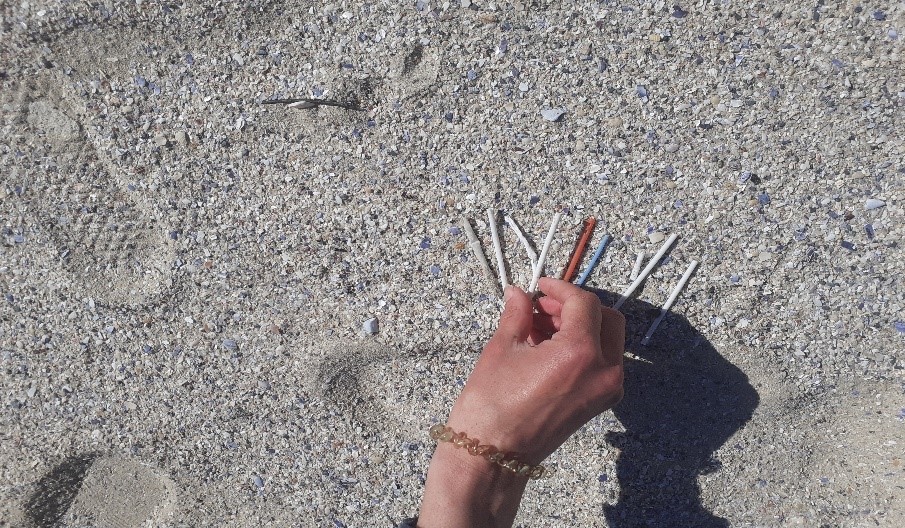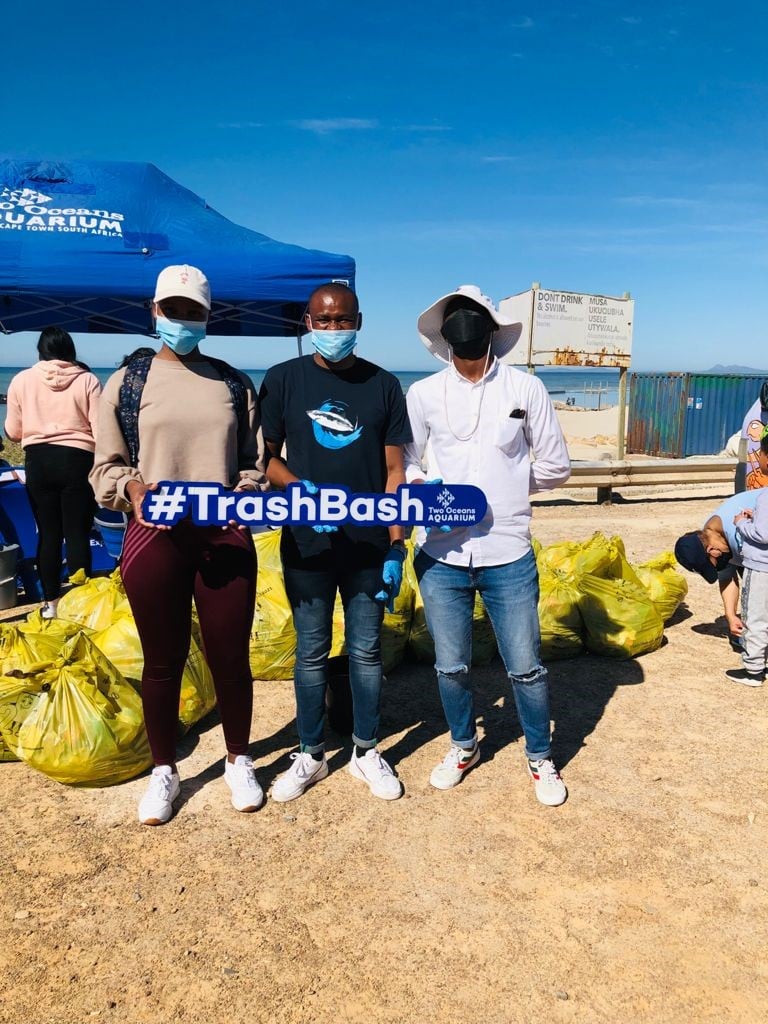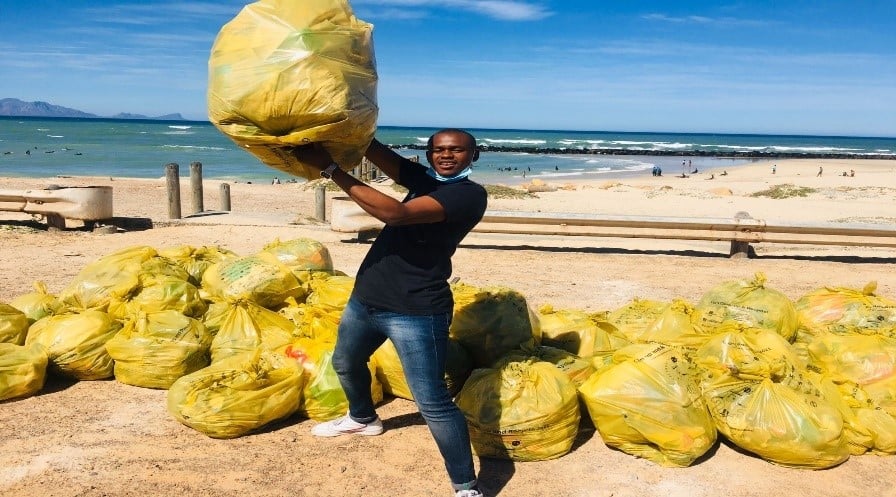Cleaning up our beaches keeps our oceans healthy
Since 1986, ocean-lovers around the world have been lending their time to clean up beaches on International Coastal Clean-Up Day on the third Saturday of September. We all know how important is it to do our bit as active citizens in maintaining our natural environments. The scourge of plastic is only increasing, so the need for beach clean-ups is very important.
This year the event was on the 18th September 2021, where I organized a Beach clean-up with Save Our Seas Foundation Shark Education Centre (SOSF-SEC) colleagues, joining Two Oceans Aquarium staff at Monwabisi Beach. Although it was a school compulsory project for me, I felt obliged as a responsible citizen who’s always keen to pay a special contribution to any movement that seeks to protect the environment, and that’s the kind of mentally I inherited from the dedicated staff of the Shark Education Centre. Conservationists primarily aim to uplift the value of the ocean by hosting environmental awareness programs that propel and advance sustainability in our marine communities. It is always a good feeling for me to give back to the environment that offers us life.
Beaches are an essential part of human lives. The point of beach clean-up is more than creating a beautiful sand shoreline for residents and visitors. Although a hygienic and clean beach is of paramount importance, removing litter from the shoreline is of benefit to the ocean ecosystem. A great deal of marine life depends on the beach ecosystem, but the naked eye cannot see most of them as they are small in size or buried in the sand. These organisms play an important role in the ocean, they provide nutrients to the sea, and their presence makes the ecosystem healthier.
Thousands of marine animals worldwide have been affected by plastic pollution, including sea turtles, seabirds, and marine mammals. Therefore, Beach clean-ups are vital to mitigate the problem caused by ocean debris and the danger that plastic pollution poses to marine life.
Knowing the impacts of the rubbish on our beaches, my intention of organizing a beach clean-up was to gather important data on the types of trash that pollutes the shoreline. As it is inevitable to eliminate plastic trash entering the beach. However, identifying the most common and harmful debris items ensures that environmental groups can find ways to stop them from entering the oceans or being littered on beaches. Data-driven strategies can be developed to mitigate the number of plastics entering our waters.

Lolli-pop straws that were found at Monwabisi beach during a beach clean up © SOSF Shark Education Centre
During our beach clean-up, we collected about 15 bags with estimated kilograms of 91 kg combined. The most dominant constituents were straws, plastic bags, foam pieces, glass bottles, and food packaging wraps, and fishing gear contributing the heaviest weight. Loll
i-pop straws were frequently found easily with no searching effort, while foam pieces were the most difficult to be picked up because of their sizes. In the past beach clean-up records, cigarettes buds used to be the most dominant litter on beaches, and I also thought I would find most of them, but it was not the case as they were rare to be found by most of us. The trash result from beach walkers and irresponsible dumping of plastics on land which ultimately land on beaches and poses threats that degrade the marine environment.
Whenever plastic reaches the shore, it gradually breaks down into smaller pieces known as microplastics, which are as small as plankton sometimes, which are mistaken for food by marine animals such as seals, turtles, and other fish. These creatures may suffer for months or years before dying after ingesting microplastics. Microplastics contain toxic chemicals and may increase the chance of diseases and may affect reproduction.
In light of all that has been said, it is now clear that these threats are caused by human, which makes it an absolute necessity for every responsible citizen to be engaged in environmental campaigns.


